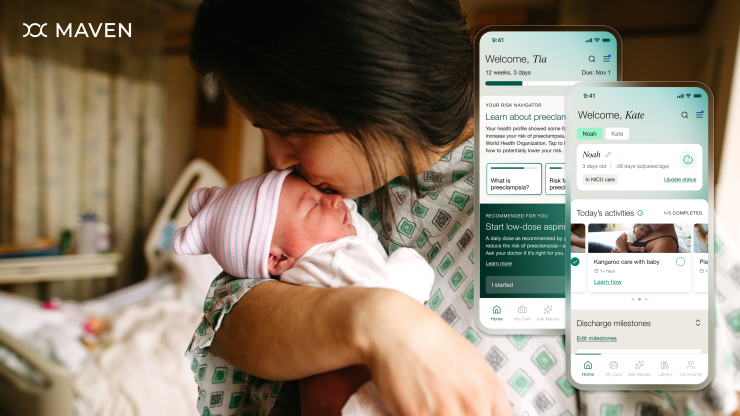- Key insight: Learn how AI-driven early risk assessment is reshaping employer maternal-health strategies.
- What's at stake: Rising pregnancy and NICU costs threaten employer healthcare budgets and workforce productivity.
- Expert quote: Dr. Neel Shah - Pregnancy risk trends are accelerating, aligning employer and employee interests.
- Source: Bullets generated by AI with editorial review
Up to 50,000 women experience high-risk pregnancies each year, according to the Cleveland Clinic,
High-risk pregnancies can include maternal pre-existing
"One of the things we see consistently is that risk in pregnancy and trend in healthcare spending is going up by a lot year-over-year," says Dr. Neel Shah, Maven's chief medical officer. "So there's this alignment between the interests of employers and the interest of [employees] who are trying to start a family, to provide better support than exists otherwise."
Maven's maternal support has expanded to include early risk assessments using AI, and specialized care teams and resources to help women manage their pregnancies. The goal is to help expectant parents avoid issues when possible, and have support at the ready if something does occur.
Read more:
Why risk identification is necessary
When pregnancy or birth complications are present, costs multiply exponentially. Increased prenatal monitoring, birth challenges and postnatal treatment, including babies being placed in the NICU, are the "sleeper in your spending," Dr. Shah says.
"We're used to thinking about cancer and chronic conditions like diabetes, but the sleeper in your spending is the $5 million NICU baby that could have been avoided with more than the punctuated 15-minute visit you get in the office," Dr. Shah says. "The point of Maven is to reach people in their homes, in their communities and in their workplaces, where health is actually happening. [When] you do that for people, they're better off."
Postpartum Support International reports that high-risk pregnancies can also have an adverse effect on women's mental health, including increased anger, fear, anxiety and depression, which can compound already-present complications.
"If you're an employer, you're on the hook for managing spending and also managing your business, and your reproductive-age workforce is the engine of your business," Dr. Shah says. "It's about the cost, but it's also about your people and helping them be productive and show up as their best selves. That's impossible when you're going through a difficult fertility journey, or a complicated pregnancy, or you're trying to return to work after having a gnarly NICU experience."
Read more:
How Maven's new additions work
Following a questionnaire about the expecting mother's health history and other relevant information, AI technology assesses the responses and predicts the chance of the pregnancy being high risk. If found to be so, Maven reaches out with clinically reviewed medication advice and educational resources, and sets the mother up with a team including a care advocate, OB and even a career coach to develop a plan moving forward. Mothers can also be connected with midwives, doulas, lactation consultants, and other specialists.
Shah notes the importance of advancing technology, such as wearables, that track areas such as blood pressure and sleep, which make sharing information with Maven's healthcare providers in real time easier than ever before. The platform is fully integrated with Apple Health, Oura Ring and other popular wearables.
More sophisticated at-home monitoring can also be done when needed, and any clinical experience a mother has can be shared with the Maven team and vice versa, providing a more comprehensive approach to the pregnancy, birth and postpartum journey.
"The idea is that whatever is happening at Maven, whatever is happening when you get a lab test and whatever is happening in the doctor's office have a similar source of truth. With our patients' permission, we're able to aggregate all that together." says Dr. Shah. "For example, if a mom delivers her baby and the baby unexpectedly goes to the NICU, she doesn't have to think to call us. We will know, and then we will be there to proactively support her."
Read more:
Among mothers who engage with Maven, there is a 20% lower C-section rate and a 32% reduction in NICU admissions. With more technology, precision and well-thought-out care, building a family can be less complicated, Shah says.
"The capability that we're enhancing is one we've had for a while: To identify people who are "high risk" and then help them manage their conditions to achieve better outcomes, lower C-section rates, lower NICU rates and shorter stays in the NICU so the babies can go home with their parents faster," he says.






